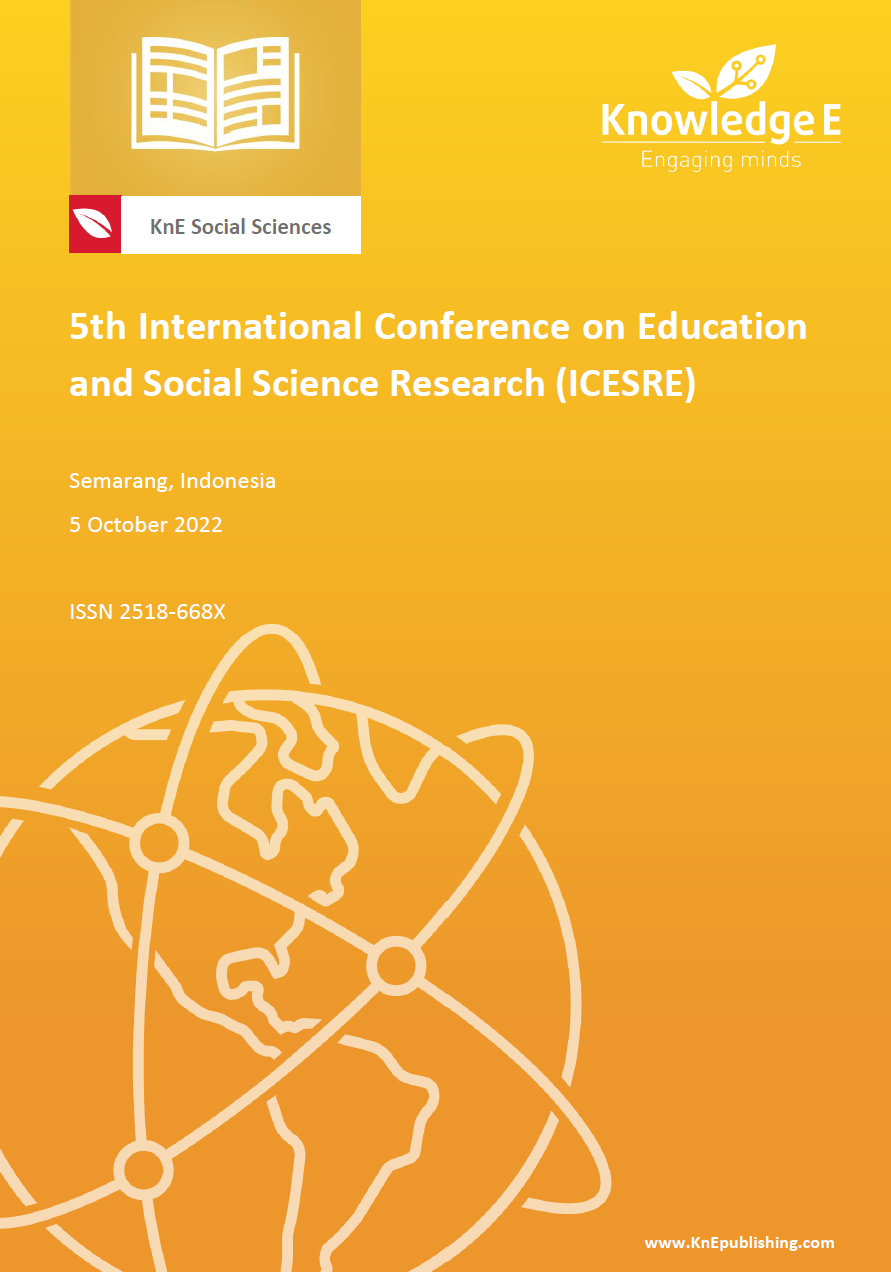Bibliometric Analysis of Research Development Trends on Project-Based Learning
DOI:
https://doi.org/10.18502/kss.v7i19.12476Abstract
This study aimed to analyze the developmental trend of national and international publications about Project Based-Learning (PjBL) through a systematic Literature Review (SRL) and bibliometric. The study also explores how scholars worldwide contributed to the SCOPUS databases from 2010 to 2022. A total of 2,003 papers comprised the sample. Data collection in this study was done by searching the SCOPUS website using the keywords ‘Project-based Learning’, PjBL,’ ‘PjBL and research, instruction,’ and ‘PjBl and learning’ with the category of the search being ‘article titles, abstract in the period 2010-2022.’ Data in the form of publications per year, journals containing PjBL articles, authors and subjects were analyzed using Microsoft Excel. The developmental trend of publications on PjBL was analyzed using the VosViewer software. The study results revealed that the number of scholarly articles on PjBL is increasing. Research findings can assist relevant researchers in recognizing PjBL research trends and recommending paths for further study.
Keywords: Project based-learning; research trend; bibliometric analysis
References
[2] Aldabbus S. Project-based learning: Implementation & challenges. International Journal of Education, Learning and Development. 2018;6:71–79.
[3] Bani-Hamad AH, Abdullah AMH. The effect of project-based learning to improve the 21st century skills among Emirati secondary students. International Journal of Academic Research in Business and Social Sciences. 2019;9:560–573.
[4] Allison JM. Project based learning to promote 21st century skills: An action research study [Doctoral dissertation]. Williamsburg, USA: William & Mary School of Education; 2018.
[5] Puspitasari E. Project-based learning implementation to cultivate preservice english teachers’ 21st century skills. Indonesian Journal of English Language Teaching and Applied Linguistics. 2020;5:191–203.
[6] Setiawan DAL, Bharati A. Developing HOT project-based-speaking assessment to stimulate the students’ critical thinking and creativity. English Education Journal. 2018;8:301–307.
[7] Issa A, Khataibeh HB. The effect of using project based learning on improving the critical thinking among upper basic students from teachers’ perspectives. Pegem Journal of Education and Instruction. 2021;11:52–57.
[8] Farindhani MN, Wangid DA. Scientific-based pictorial storybook with project-based learning method for improving the critical thinking skills of elementary school students. Jurnal Prima Edukasia. 2019;7:94–105.
[9] Wang W. Evaluation principles’ influence of critical thinking foreign language teaching on German literature classroom learning motivation. Revista de Cercetare si Interventie Sociala. 2021;83:81–94.
[10] Sasson N, Yehuda I, Malkinson I. Fostering the skills of critical thinking and questionposing in a project-based learning environment. Thinking Skills and Creativity. 2018;29:203–212.
[11] Abdelfattah Abdelkafy Badr B. The effect of a proposed blended project-based learning program on developing the 4Cs skills for secondary stage students. 2021;91:49–107.
[12] Walters T, Sirotiak RC. Assessing the effect of project based learning on leadership abilities and communication skills. 47th ASC Annual International Conference Proceedings; 2011.
[13] Rupérez MQ, Ramos PC, Dios JMG. Project-based learning (PBL) and its impact on the development of interpersonal competences in higher education. NAER: New Approaches in Educational Research. 2022;11:259–276.
[14] Saenab NA, Yunus S, Saleh SR, Virninda AR, Hamka AN, Sofyan L. Project-based learning as the atmosphere for promoting students’ communication skills. Journal of Physics: Conference Series. 2018;1028:012026.
[15] Yang YK. Influences of communication skill and interpersonal ability on clinical competence of nursing students. Journal of Korean Academy of Fundamentals of Nursing. 2018;25:99–108.
[16] Danial A, Syaefuddin A, Madjid S, Hamdan A. Application of the andragogy principle in the life skills education program in increasing the self-reliance of entrepreneurs. Empowerment : Jurnal Ilmiah Program Studi Pendidikan Luar Sekolah. 2019;8:115– 125.
[17] Handrianto MA, Rahman C. Project based learning: A review of literature on its outcomes and implementation issues. LET: Linguistics, Literature and English Teaching Journal. 2019;8:110–129.
[18] Wijayati S, Sumarni N, Supanti W. Improving student creative thinking skills through project based learning. KnE Social Sciences. 2019:408–421.
[19] González-Pérez MS, Ramírez-Montoya LI. Components of Education 4.0 in 21st century skills frameworks: Systematic review. Sustainability. 2022;14:1493.
[20] van Laar J, van Deursen E, van Dijk AJ, de Haan JA. Determinants of 21st-century skills and 21st-century digital skills for workers: A systematic literature review. Sage Open. 2020;10:2158244019900176.
[21] Chalkiadaki A. A systematic literature review of 21st century skills and competencies in primary education. International Journal of Instruction. 2018;11:1–16.

